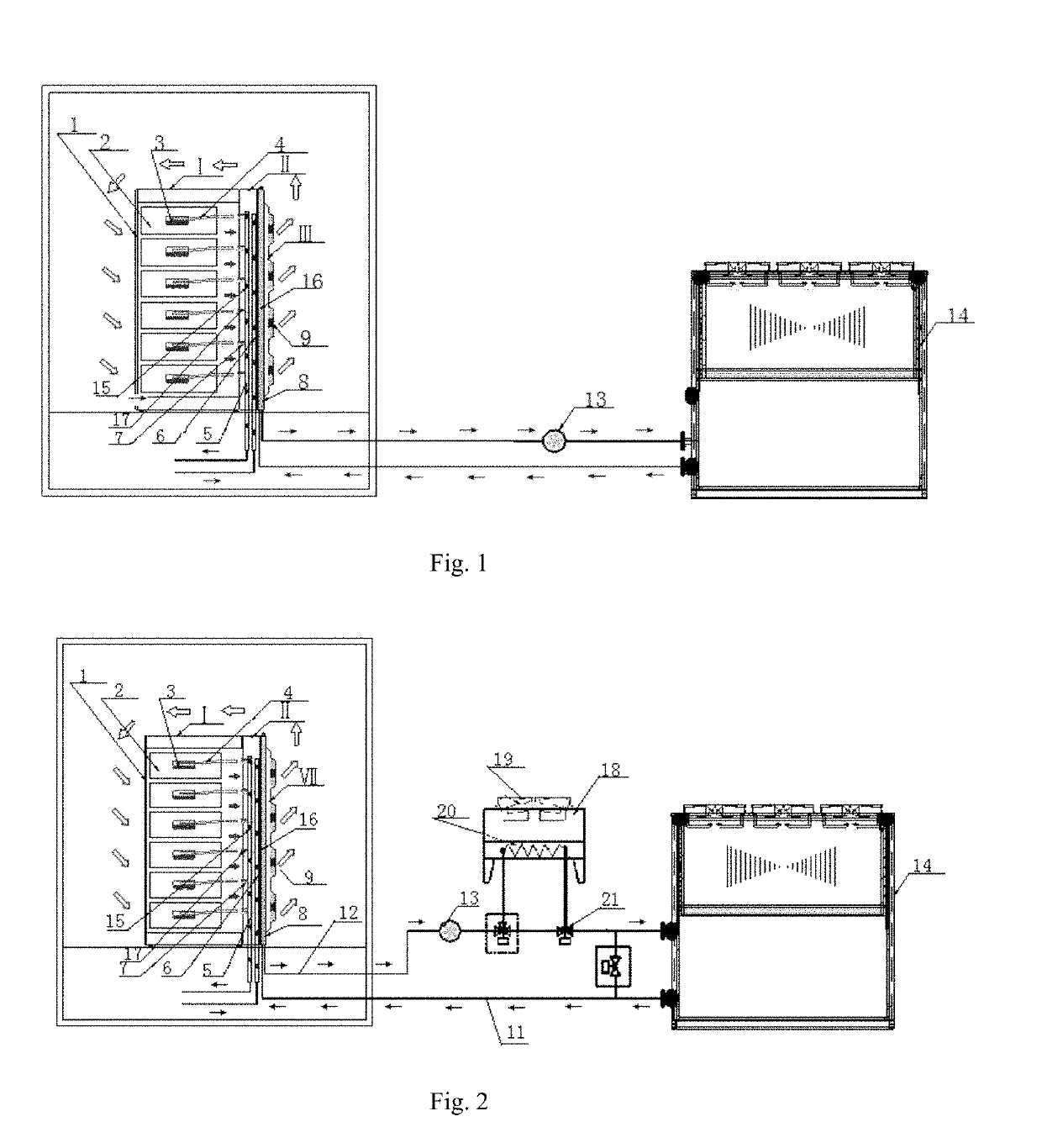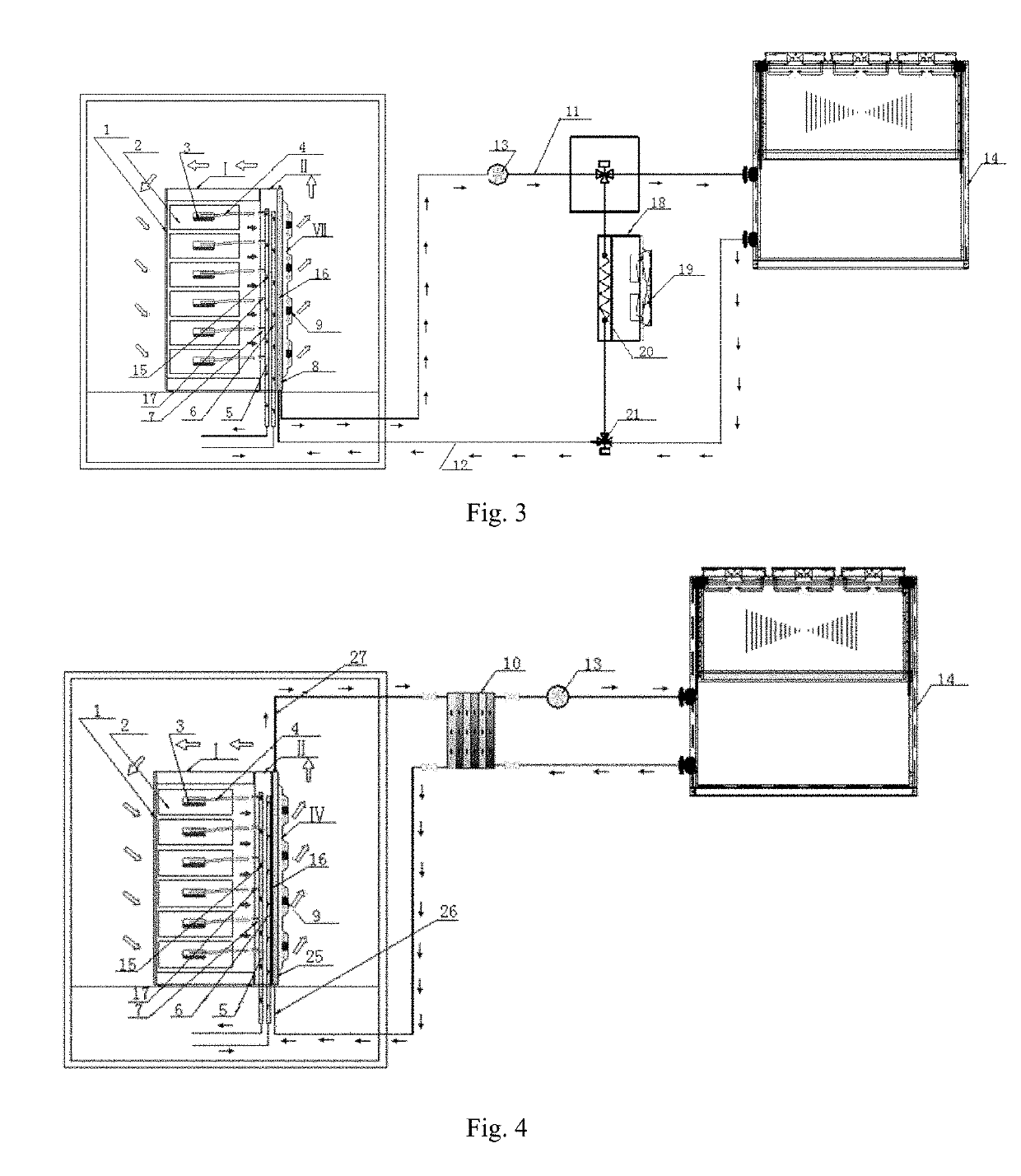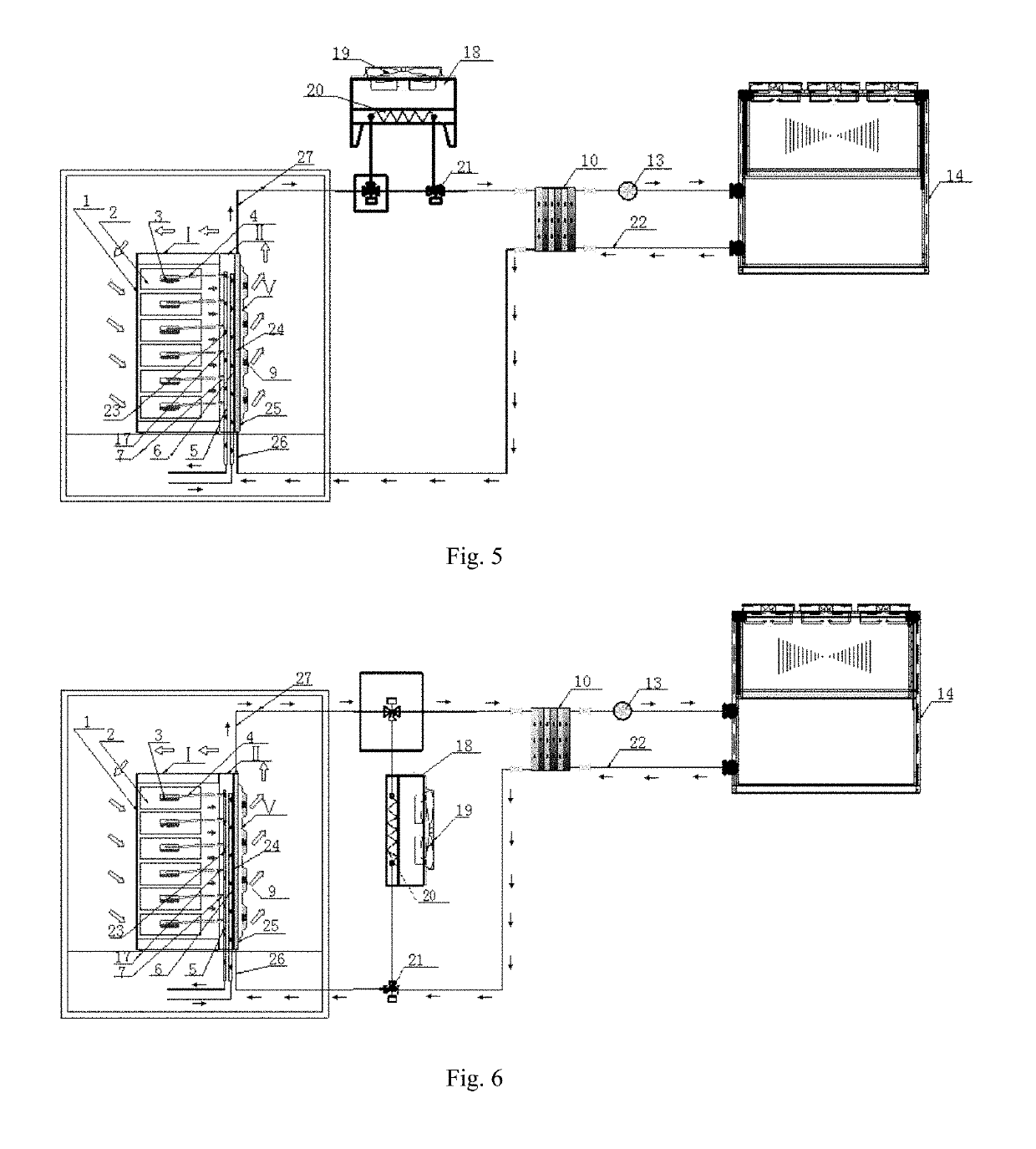Server rack heat sink system with combination of liquid cooling device and auxiliary heat sink device
a technology of liquid cooling and server rack, which is applied in the direction of cooling/ventilation/heating modifications, climate sustainability, and modifications using liquid cooling, can solve the problems of large power consumption of air conditioning systems, increase in device power consumption, and increase in heat generated by devices inside the cabinet, so as to achieve no local overheating, high cooling efficiency, and good
- Summary
- Abstract
- Description
- Claims
- Application Information
AI Technical Summary
Benefits of technology
Problems solved by technology
Method used
Image
Examples
example 1
[0130]As shown in FIG. 1, a server cabinet heat dissipation system is provided, comprising a liquid cooling server cabinet I, a liquid cooling device II, and a door-type cold water heat exchange device III. The liquid cooling server cabinet I comprises a cabinet body 1 and a liquid cooling server 2. A server chip 3 and a liquid heat dissipater 4 are provided inside the liquid cooling server 2. The liquid cooling device II comprises a distributor 6, a collector 5 and a connecting branch pipe 7. The door-type cold water heat exchange device III comprises a cold water heat exchanger 8, a fan 9, a pump 13 and a chiller 14. The distributor 6 and the collector 5 of the liquid cooling device II are respectively connected with the liquid cooling server 2 by the liquid inlet pipe 7 and an liquid outlet pipe 17. The cold water heat exchanger 8 of the door-type cold water heat exchange device III is installed on the liquid cooling device II.
[0131]The liquid cooling device II is externally inst...
example 2
[0140]As shown in FIG. 2, a server heat dissipation system is provided, comprising a liquid cooling server cabinet I, a liquid cooling device II, and a natural-cooling cold water device VII. The liquid cooling server cabinet I comprises a cabinet body 1 and multiple liquid cooling servers 2 provided inside the cabinet body. The liquid cooling server 2 is provided with a server chip 3. The liquid cooling device II comprises a liquid heat dissipater 4, a distributor 6, and a collector 5. The distributor 6 and the collector 5 are respectively connected with the liquid heat dissipater 4 inside the liquid cooling server by a plurality of liquid inlet pipes 7 and a plurality of liquid outlet pipes 17. The liquid heat dissipater 4 contacts the server chips 3 or is provided adjacent to the server chips 3. The natural-cooling cold water device VII comprises a cold water heat exchanger 8 provided on the liquid cooling device, a fan 9 installed at an air outlet side of the cold water heat exch...
example 3
[0154]As shown in FIG. 3, a server heat dissipation system is provided, comprising a liquid cooling server cabinet I, a liquid cooling device II, and a natural-cooling cold water device VII. The liquid cooling server cabinet I comprises a cabinet body 1 and multiple liquid cooling servers 2 provided inside the cabinet body. The liquid cooling server 2 is provided with a server chip 3. The liquid cooling device II comprises a liquid heat dissipater 4, a distributor 6, and a collector 5. The distributor 6 and the collector 5 are respectively connected with the liquid heat dissipater 4 inside the liquid cooling server by a plurality of liquid inlet pipes 7 and a plurality of liquid outlet pipes 17. The liquid heat dissipater 4 contacts the server chips 3 or is provided adjacent to the server chips 3. The natural-cooling cold water device VII comprises a cold water heat exchanger 8 provided on the liquid cooling device, a fan 9 installed at an air outlet side of the cold water heat exch...
PUM
 Login to View More
Login to View More Abstract
Description
Claims
Application Information
 Login to View More
Login to View More - R&D
- Intellectual Property
- Life Sciences
- Materials
- Tech Scout
- Unparalleled Data Quality
- Higher Quality Content
- 60% Fewer Hallucinations
Browse by: Latest US Patents, China's latest patents, Technical Efficacy Thesaurus, Application Domain, Technology Topic, Popular Technical Reports.
© 2025 PatSnap. All rights reserved.Legal|Privacy policy|Modern Slavery Act Transparency Statement|Sitemap|About US| Contact US: help@patsnap.com



